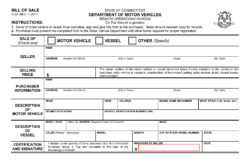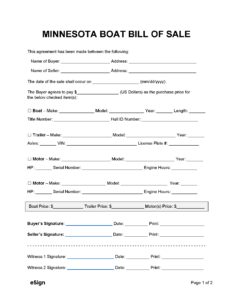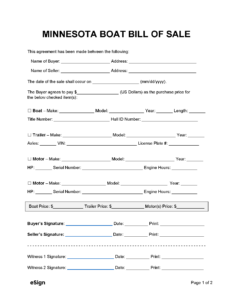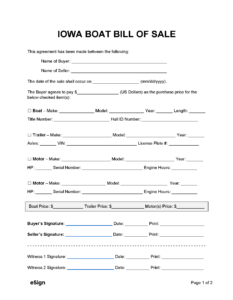Navigating the process of buying or selling personal property, whether it’s a vehicle, a boat, or even significant household items, can sometimes feel like stepping into a legal maze. But don’t worry, there’s a straightforward document designed to make these transactions smooth and legally sound: the bill of sale. This essential piece of paper serves as official proof of transfer of ownership from one party to another, providing clarity and protection for everyone involved in Connecticut.
Think of a bill of sale as your legal receipt. It’s not just about acknowledging that money changed hands; it’s about documenting the specific details of the item, the terms of the sale, and the identities of both the buyer and the seller. For residents of Connecticut, understanding how to properly utilize a bill of sale can prevent misunderstandings and provide a solid legal foundation, ensuring peace of mind long after the transaction is complete.
Why You Need a Bill of Sale in Connecticut
A bill of sale isn’t just a formality; it’s a crucial legal document that offers significant protection to both the buyer and the seller. In essence, it formalizes the transfer of ownership of personal property and acts as a clear record of the transaction. Without it, you might find yourself in a tricky situation, especially if a dispute arises regarding the item’s condition, the agreed-upon price, or even the date of transfer. It serves as irrefutable proof should you ever need to demonstrate ownership or the terms under which an item was sold.
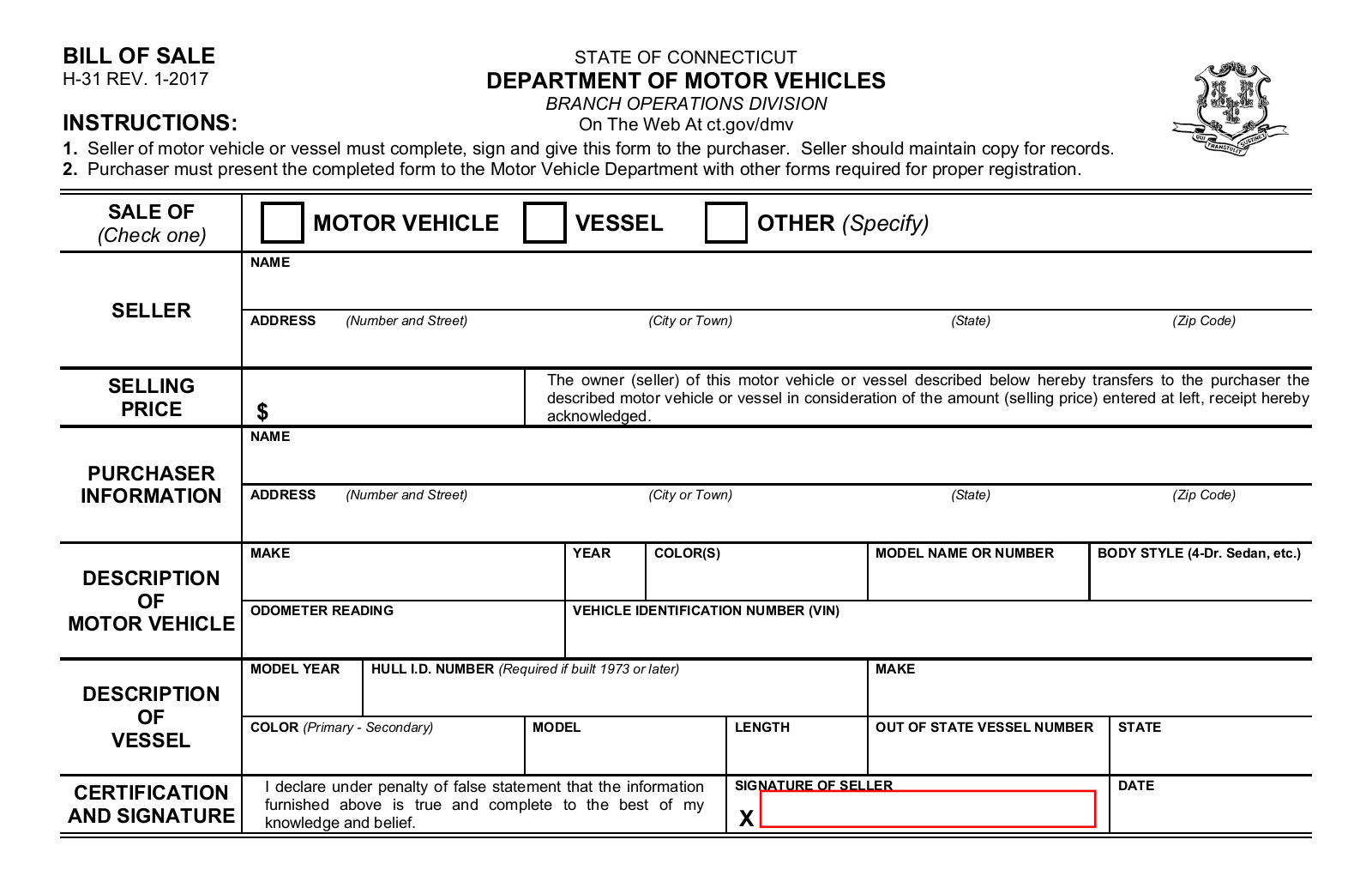
For the seller, a properly executed bill of sale provides evidence that they no longer own the item and are therefore not liable for any issues that arise after the sale. Imagine selling a car, and months later, it’s involved in an accident or receives a parking ticket – without a bill of sale, proving you weren’t the owner at that time could be challenging. For the buyer, it’s proof of ownership, necessary for registration (especially for vehicles or boats), insurance, and reselling the item in the future. It’s your legal documentation that the item now belongs to you.
This document is particularly vital for high-value items, such as cars, motorcycles, boats, recreational vehicles, or even expensive equipment. For instance, when transferring vehicle ownership in Connecticut, the Department of Motor Vehicles (DMV) often requires a bill of sale alongside the title. This ensures that the state has an accurate record of who owns what, which is essential for tax purposes and maintaining public safety. It clarifies the condition of the item at the time of sale, often including “as-is” clauses to limit future liability.
Key Information to Include
When preparing a bill of sale, accuracy and completeness are paramount. A robust bill of sale should clearly outline all pertinent details:
- The full legal names and addresses of both the buyer and the seller.
- The date the transaction took place.
- A detailed description of the item being sold, including make, model, year, color, and any unique identifiers like a Vehicle Identification Number (VIN) for cars, hull number for boats, or serial numbers for other equipment.
- The agreed-upon purchase price in both numerical and written form.
- The method of payment (e.g., cash, check, money order).
- Any specific terms or conditions of the sale, such as “sold as-is” if no warranties are implied.
- Signatures of both the buyer and the seller. While not always legally required in CT for a basic bill of sale, having the document notarized or witnessed can add an extra layer of legal weight, especially for very high-value items or those requiring formal registration.
Ensuring all these details are accurately filled out and the document is signed by both parties helps solidify the transaction, leaving little room for misinterpretation or future disagreement.
Where to Find and How to Use a Bill of Sale Template CT
Finding a reliable bill of sale template for Connecticut is simpler than you might think. While you could technically draft one from scratch, utilizing a pre-designed template ensures you don’t miss any critical components. Numerous legal websites, government resources, and even some office supply stores offer generic or state-specific templates. The key is to find one that is comprehensive and flexible enough to adapt to your specific transaction, ensuring it aligns with common practices for sales within Connecticut. Many templates are available in downloadable formats, making them easy to print and fill out.
Once you have your chosen bill of sale template CT, the process of filling it out is straightforward. Start by carefully entering the date of the sale. Then, provide the full legal names and addresses for both the buyer and the seller. Accuracy here is crucial; use names as they appear on official identification documents. Next, comes the description of the item. For vehicles, this includes the make, model, year, color, odometer reading, and most importantly, the Vehicle Identification Number (VIN). For other items, be as descriptive as possible to avoid any ambiguity about what is being sold.
After describing the item, clearly state the purchase price in both numbers and words to prevent any misunderstandings. Indicate the method of payment used. If there are any specific conditions of the sale, such as the item being sold “as-is” with no warranties, this is where you would include that clause. This is particularly important for sellers to limit their liability after the transaction. Finally, both the buyer and the seller must sign and date the document. Making copies for both parties is essential; each party should retain an original signed copy for their records.
For specific transactions like vehicle sales in Connecticut, a properly completed bill of sale, along with the vehicle’s title, is indispensable for the buyer to register the vehicle with the DMV. Without these documents, the transfer of ownership cannot be legally completed, meaning the buyer won’t be able to obtain new registration plates or a valid registration. Similarly, for boats, motorhomes, or other titled property, the bill of sale acts as the supporting documentation for the transfer of the title and subsequent registration, ensuring a smooth transition of legal ownership.
Taking the time to complete a bill of sale for any significant transaction is a small effort with significant payoffs. It provides a clear, undeniable record of what was sold, to whom, for how much, and when. This simple document provides a layer of security and transparency for both parties involved, greatly reducing the potential for future disagreements.
Making sure your sales transactions are properly documented is a smart move for anyone in Connecticut. It safeguards your interests and provides a clear record that can be invaluable down the line. Whether you’re selling a cherished antique or buying a new set of wheels, having this crucial document in order ensures that everyone walks away with peace of mind.
